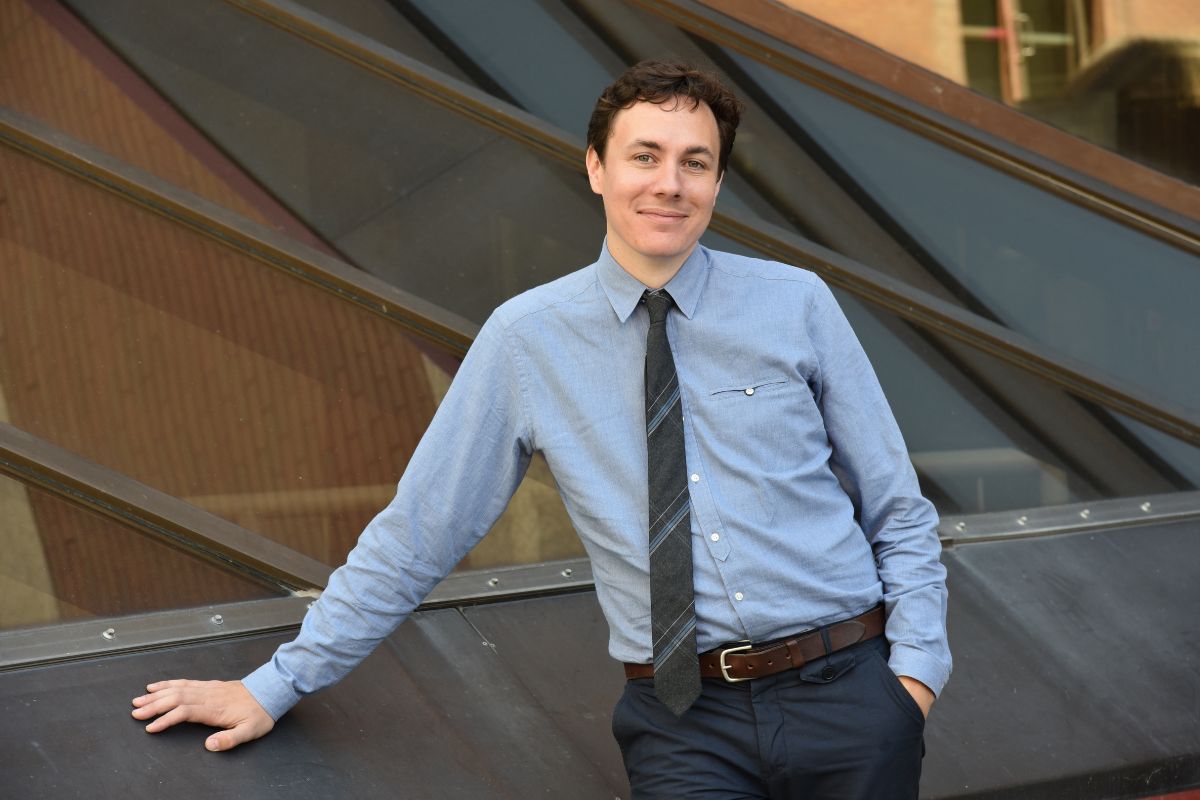
Asper associate professor’s work named best paper by top management journal
Sean Buchanan examines how business responds to social issues
A recent paper by Asper’s Sean Buchanan and co-authors Trish Ruebottom, Maxim Voronov and Madeline Toubiana was awarded Best Article by the Academy of Management. The paper was published in The Academy of Management Review, an FT50 journal.
Each year, the Academy of Management recognizes original and provocative articles that make a substantial contribution to the field of management. Buchanan and co-authors’ paper “Commercializing the Practice of Voyeurism” explores how different industries generate value through transgressive or taboo acts of voyeurism.
Recognizing the value in transgression
“It’s a great honour to receive this award,” says Buchanan. “If you had told me back when I was a PhD student that I would even get published in this journal, I would be thrilled. But to win best paper? It’s just a huge honour and very exciting.”
Buchanan and his co-authors develop a theory about why morally grey, or even outright transgressive, acts seem to reliably generate value and viewership. From sports like mixed martial arts (MMA) and media like reality TV, to erotic webcams and travel trends like slum tourism, they observe a balance between commercial success and transgressive media.
Diving into theories of authenticity, emotion and transgression, the paper explores how, for instance, the violence of MMA needs to seem real enough to get a response from viewers while being mainstream enough to grow a larger audience.
Pulling from all these ideas, the paper also encapsulates what inspires Buchanan as a researcher.
“You find yourself in strange places as an organizational theorist,” he says. “No matter what I’m working on, I end up learning about a bunch of things that are outside the discipline, and that’s really one of the best parts of being an academic.”
Buchanan’s most recent publication, appearing this year in Organization Science—another FT50 journal—seems vastly different from his work on voyeurism. As he explains, however, there is a through-line.
“I’m interested in how business responds to social issues. That can take you to voyeurism and how it is commercialized, and it can also take you to how issues like climate change and working conditions are difficult to properly address,” says Buchanan.
A different kind of looking: transnational oversight of sustainability
In another paper, Buchanan and co-authors Charlene Zietsma and Dirk Matten explore how different private regulatory agreements or certifications work together to guide how firms respond to social and environmental issues. Buchanan and team refer to these groups of agreements as “settlement constellations.”
Their work helps explain why firms committed to sustainability and social change struggle to make progress on these issues. A certification related to sustainable forestry, for instance, needs to be strict enough to seem legitimate while still appealing to more firms by not becoming too inconvenient to follow.
“In class, I explore this with my students. I’ll ask them to look at their notebooks, which are usually certified as products of sustainable forestry,” he explains. “There are two competing sustainable forestry certifications: the Sustainable Forestry Initiative and the Forestry Stewardship Council. The first is less stringent, but the average consumer likely doesn’t know the difference. They even purposely make the certifications sound similar so that people confuse them and attach more meaning to the less stringent one.
“These certifications are a bit like a race to the bottom; they are designed to satisfy the least progressive participating firm. You need collective action on a really large scale to address these problems, and private agreements don’t quite get us there,” he says.
In the same way that previously transgressive acts find a mainstream audience by pulling the right levers between authenticity and taboo, approaches to business that once seemed alternative—sustain-centric, socially responsible—do have the capacity to move into the mainstream as norms of business change and sustain-centric firms as well as sustainability activists and theorists push this change.
Buchanan’s work, whether he is studying reality TV or standards of sustainable forestry, takes this capacity for change seriously, approaching business as a dynamic and responsive field and pursuing individual phenomena with curiosity and a willingness to acknowledge, critique and learn.






